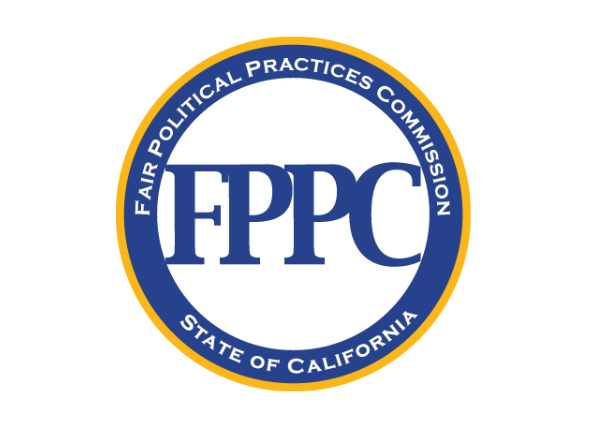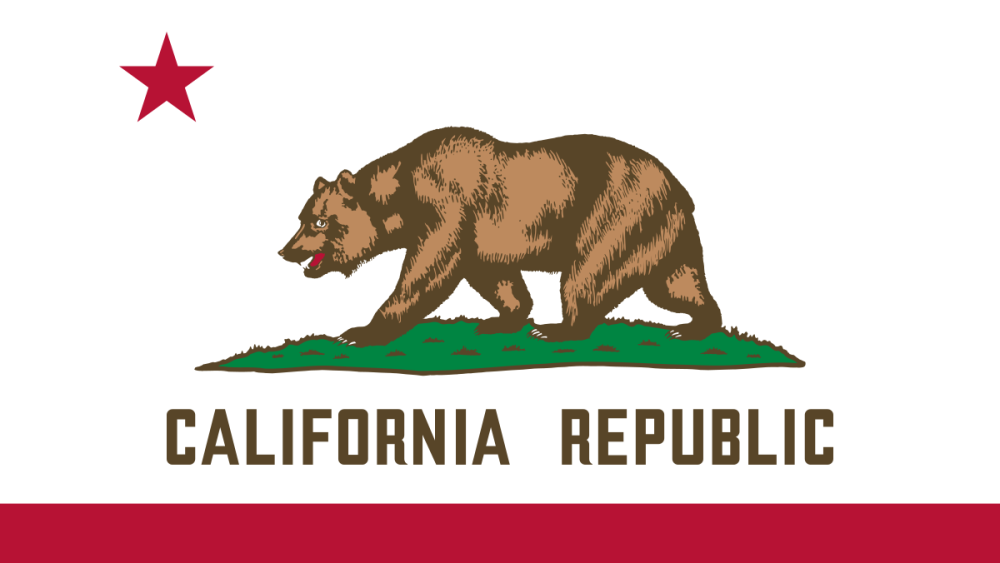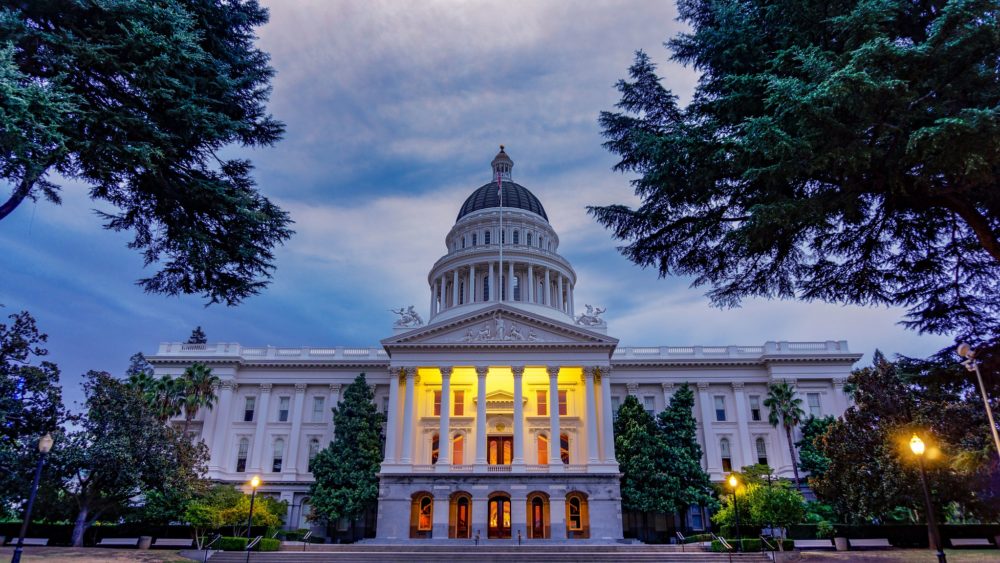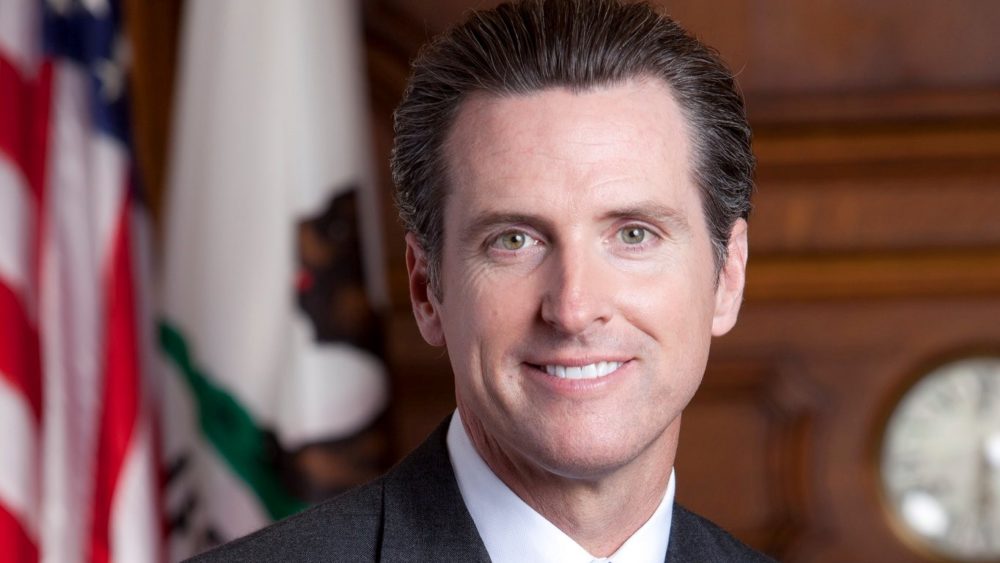May 23, 2023 •
FPPC Passes New Regulations

The Fair Political Practices Commission has passed multiple regulations clarifying Senate Bill 1439 and Political Advertising. The regulations dealing with Senate Bill 1439 focus on who is disqualified and how an officer would know a donor has a financial interest […]
The Fair Political Practices Commission has passed multiple regulations clarifying Senate Bill 1439 and Political Advertising.
The regulations dealing with Senate Bill 1439 focus on who is disqualified and how an officer would know a donor has a financial interest in a proceeding before the officer.
Regulations revising political advertising add additional disclosures and adds regulations to less-used methods of communication.
March 8, 2023 •
California Senate Bill 1439 Challenged in Court
A coalition of business groups have filed a lawsuit against the Fair Political Practices Commission, seeking to stop enforcement of new pay-to-play restrictions in Senate Bill 1439. The new law removed the exception for locally elected officials and extended the […]
A coalition of business groups have filed a lawsuit against the Fair Political Practices Commission, seeking to stop enforcement of new pay-to-play restrictions in Senate Bill 1439.
The new law removed the exception for locally elected officials and extended the restricted period from three to 12 months.
The lawsuit seeks to throw out the new law, claiming the bill is unconstitutional, both in the manner it altered the Political Reform Act and in practice.
Plaintiffs allege Senate Bill 1439 does not further the original purpose of the Political Reform Act, but directly conflicts with the original provisions regulating certain financial conflicts of interest of public officials.
Additionally, the plaintiffs claim the bill is unconstitutional on freedom of speech grounds, stating the bill significantly restricts the making and receiving of campaign contributions to local elected officials throughout the state.
No trial date has been set at this time.
November 21, 2022 •
California Gift Limits and Contribution Limits Raised

Flag of California
The California Fair Political Practices Commission (FPPC) held its November meeting, approving many changes for 2023. The FPPC raised the annual gift limit to $590 and clarified the phrase “arrange for the making of a gift.” The FPPC also expanded […]
The California Fair Political Practices Commission (FPPC) held its November meeting, approving many changes for 2023.
The FPPC raised the annual gift limit to $590 and clarified the phrase “arrange for the making of a gift.”
The FPPC also expanded and further explained how a lobbyist or lobbying firm “places an official under personal obligation.”
The contribution limits have been adjusted to match increases in the cost of living, raising the limit for Senate or Assembly to $10,900 and $36,400 for governor.
The new limits take effect January 1, 2023.
July 22, 2022 •
California to Allow Crypto Contributions

Flag of California
The Fair Political Practices Commission (FPPC) of California voted to allow contributions to political candidates in cryptocurrency. Until now, contributions made in cryptocurrency were banned under all circumstances. Under the new regulation, the contribution must immediately be converted into dollars […]
The Fair Political Practices Commission (FPPC) of California voted to allow contributions to political candidates in cryptocurrency.
Until now, contributions made in cryptocurrency were banned under all circumstances.
Under the new regulation, the contribution must immediately be converted into dollars upon making the contribution and the cryptocurrency must be processed through an exchange registered with the U.S. Department of Treasury, Financial Crimes Enforcement Network.
An exchange is the marketplace where cryptocurrency is converted to different types of tender, including USD and the exchange can charge transaction fees.
The limits on cryptocurrency are the same as any non-cash contribution.
When reporting cryptocurrency contributions, the amount of the contribution is the fair market value of the cryptocurrency at the time the exchange obtains possession of the contribution and any amounts charged or withheld by the exchange must be reported by the committee as expenditures at the time the fees are deducted or charged.
December 3, 2021 •
FPPC Adopts New Regulations

California State Capitol Building - Jeff Turner
The California Fair Political Practices Commission (FPPC) passed regulations regarding reporting payments for online communications and accounting of lobbying entities. Regulation 18421.10 seeks to shed light on social media manipulation by “purchasers” and “bots.” Under the new rules, committees who […]
The California Fair Political Practices Commission (FPPC) passed regulations regarding reporting payments for online communications and accounting of lobbying entities.
Regulation 18421.10 seeks to shed light on social media manipulation by “purchasers” and “bots.”
Under the new rules, committees who pay more for exposure on social media will have to disclose the amount spent and the type of manipulation bought, whether it is for more likes, followers, or shares.
Regulation 18612 replaced the old regulation, increasing the reporting requirements and clarifying the style (i.e., journal, ledger, or record) of record keeping.
Similarly, the FPPC amended Regulation 18610 and Regulation 18615 involving lobbyist accounting and lobbyist employer accounting.
Both amended regulations and 18612 clean up the language of the regulation and heighten the record-keeping requirements mandated by the state.
October 19, 2021 •
FPPC Proposes New Rule Changes

Sacramento, CA Skyline - Basil D Soufi
The Fair Political Practices Commission (FPPC) has announced that on November 18 the commission will consider proposed regulations concerning electronic signatures and lobbying record keeping. The FPPC seeks to clarify an “original” filing can be made with an electronic signature. […]
The Fair Political Practices Commission (FPPC) has announced that on November 18 the commission will consider proposed regulations concerning electronic signatures and lobbying record keeping.
The FPPC seeks to clarify an “original” filing can be made with an electronic signature.
Additionally, the FPPC wants to define the types of records lobbyists, lobbying firms, lobbyist employers, and persons spending $5,000 or more must maintain.
The FPPC will consider expanding the number of records that must be kept and the breadth of detail the records must contain.
September 17, 2021 •
FPPC to Consider Changes to Behested Payments

Sacramento, CA Skyline - Basil D Soufi
The Fair Political Practices Commission (FPPC) has announced that on October 21 the Commission will consider proposed regulations concerning behested payment reporting. The regulation seeks to shed light on a growing problem occurring in California elections, large donations being made […]
The Fair Political Practices Commission (FPPC) has announced that on October 21 the Commission will consider proposed regulations concerning behested payment reporting.
The regulation seeks to shed light on a growing problem occurring in California elections, large donations being made to candidate-controlled charities in place of trackable political contributions.
The regulation, prospectively codified as § 18424.3, would increase the reporting requirements to the behested payment report.
The regulations will require more detailed disclosures as to the name of the payor and the “single source” of the behested payment.
July 16, 2021 •
FPPC Look to Shed Light on Behested Payments

Sacramento, CA Skyline - Basil D Soufi
The California Fair Political Practices Commission (FPPC) met on July 15 to discuss new regulations concerning behested payments. A campaign finance watchdog report noted in a report there has be a substantial rise in donations to charities that have a […]
The California Fair Political Practices Commission (FPPC) met on July 15 to discuss new regulations concerning behested payments.
A campaign finance watchdog report noted in a report there has be a substantial rise in donations to charities that have a connection to a candidate or committee via behested payments.
Currently, there are no reporting requirements if a donation is given to a charity that has ties with a candidate or committee.
The pending regulations seek to shed light on who is making these donations and what candidate or committee is tied to the charity receiving the donation.
The FPPC only has the regulatory authority to make rules that require disclosure, any rules prohibiting such donations must come from the Legislature.
Formal voting and hearings over the proposed regulations are set to occur in September.

Downtown San Diego, California
The California Fair Political Practices Commission (FPPC) issued an opinion finding the state’s new limits on contributions to local candidates passed in Assembly Bill 571 for jurisdictions that otherwise do not have a limit are not aggregated with contributions made […]
The California Fair Political Practices Commission (FPPC) issued an opinion finding the state’s new limits on contributions to local candidates passed in Assembly Bill 571 for jurisdictions that otherwise do not have a limit are not aggregated with contributions made before the effective date of the bill.
FPPC Opinion No. O-21-001 reverses earlier informal advice from staff stating contributions received before the January 1 effective date were aggregated for purposes of the new default limit of $4,900 per election.
March 17, 2021 •
California Governor Newsom Expands Lobbying Ban

California Gov. Gavin Newsom
Gov. Gavin Newsom has expanded a ban on political consultants lobbying him and his administration to include unpaid advisers, based on recommendations from the Fair Political Practices Commission (FPPC). No consultant, whether paid or not, will be permitted to leverage […]
Gov. Gavin Newsom has expanded a ban on political consultants lobbying him and his administration to include unpaid advisers, based on recommendations from the Fair Political Practices Commission (FPPC).
No consultant, whether paid or not, will be permitted to leverage their relationship with the governor to unduly benefit a client in connection with legislative or administrative actions.
Under the new rules, appointees with a high level of influence over administration policy decisions are prohibited from accepting gifts from lobbyists.
The rule applies to the governor, his wife, senior officials, policy advisers, and any equivalent position.
The new rules also prohibit influential appointees from working on specific bills in their first two years if they worked on substantially similar bills in the two years prior to joining the Newsom administration.
It will apply to appointees who joined the administration after March 1, 2021.
February 24, 2021 •
Fair Political Practices Commission Updates Regulations on Local Contribution Limits

Sacramento, CA Skyline - Basil D Soufi
The Fair Political Practices Commission (FPPC) updated their regulations regarding local campaign contribution limits due to Assembly 571. The updates will add language to the regulations regarding candidates for elective city or county offices subject to the state contribution limits. […]
The Fair Political Practices Commission (FPPC) updated their regulations regarding local campaign contribution limits due to Assembly 571.
The updates will add language to the regulations regarding candidates for elective city or county offices subject to the state contribution limits.
Those local candidates and their committees will now be subject to the regulations regarding reporting of contributions and expenditures, establishing campaign accounts, solicitation of funds, loans, terminations, and other regulations related to campaign finance.
These regulations do not apply to candidates for an elective city or county office or the candidate’s controlled committee prior to January 1, 2021.
December 17, 2020 •
Court Upholds FPPC Regulations Involving Use of Public Money in Campaigns

Sacramento, CA Skyline - Basil D Soufi
In a recent case, a Superior Court Judge ruled in favor of the Fair Political Practices Commission (FPPC). The judge upheld its authority to require disclosure of public money by public entities during an election campaign. The FPPC faced a […]
In a recent case, a Superior Court Judge ruled in favor of the Fair Political Practices Commission (FPPC).
The judge upheld its authority to require disclosure of public money by public entities during an election campaign.
The FPPC faced a challenge from the California State Association of Counties and California School Boards Association of its regulations requiring government agencies spending taxpayer money to influence voters to disclose their activity in the same manner as other individuals, groups, and entities who spend money to influence voters.
In a ruling in Los Angeles Superior Court, the Honorable Judge Mitchell Beckloff ruled the regulations in question are legal and within the authority of the FPPC.
The ruling bolsters the FPPC’s determination these regulations are valid and enforceable.
November 30, 2020 •
Fair Political Practices Commission Adopts Cost of Living Adjustment Regulations

Sacramento, CA Skyline - Basil D Soufi
The Fair Political Practices Commission (FPPC) adopted cost of living adjustment regulations amending contribution limits and gift limit amounts. The newly adjusted contribution limit in effect for candidates for the Senate or Assembly and candidates for elected seats to the […]
The Fair Political Practices Commission (FPPC) adopted cost of living adjustment regulations amending contribution limits and gift limit amounts.
The newly adjusted contribution limit in effect for candidates for the Senate or Assembly and candidates for elected seats to the Board of Administration of the Public Employees Retirement System for an election occurring during the period January 1, 2021 through December 31, 2022 is now $4,900 per person.
The newly adjusted annual gift limit amount in effect for the period January 1, 2021, to December 31, 2022, is $520.
November 30, 2020 •
Fair Political Practices Commission Adopts Cost of Living Adjustment Regulations

Sacramento, CA Skyline - Basil D Soufi
The Fair Political Practices Commission (FPPC) adopted cost of living adjustment regulations amending contribution limits and gift limit amounts. The newly adjusted contribution limit in effect for candidates for the Senate or Assembly and candidates for elected seats to the […]
The Fair Political Practices Commission (FPPC) adopted cost of living adjustment regulations amending contribution limits and gift limit amounts.
The newly adjusted contribution limit in effect for candidates for the Senate or Assembly and candidates for elected seats to the Board of Administration of the Public Employees Retirement System for an election occurring during the period January 1, 2021 through December 31, 2022 is now $4,900 per person.
The newly adjusted annual gift limit amount in effect for the period January 1, 2021, to December 31, 2022, is $520.
State and Federal Communications, Inc. provides research and consulting services for government relations professionals on lobbying laws, procurement lobbying laws, political contribution laws in the United States and Canada. Learn more by visiting stateandfed.com.

